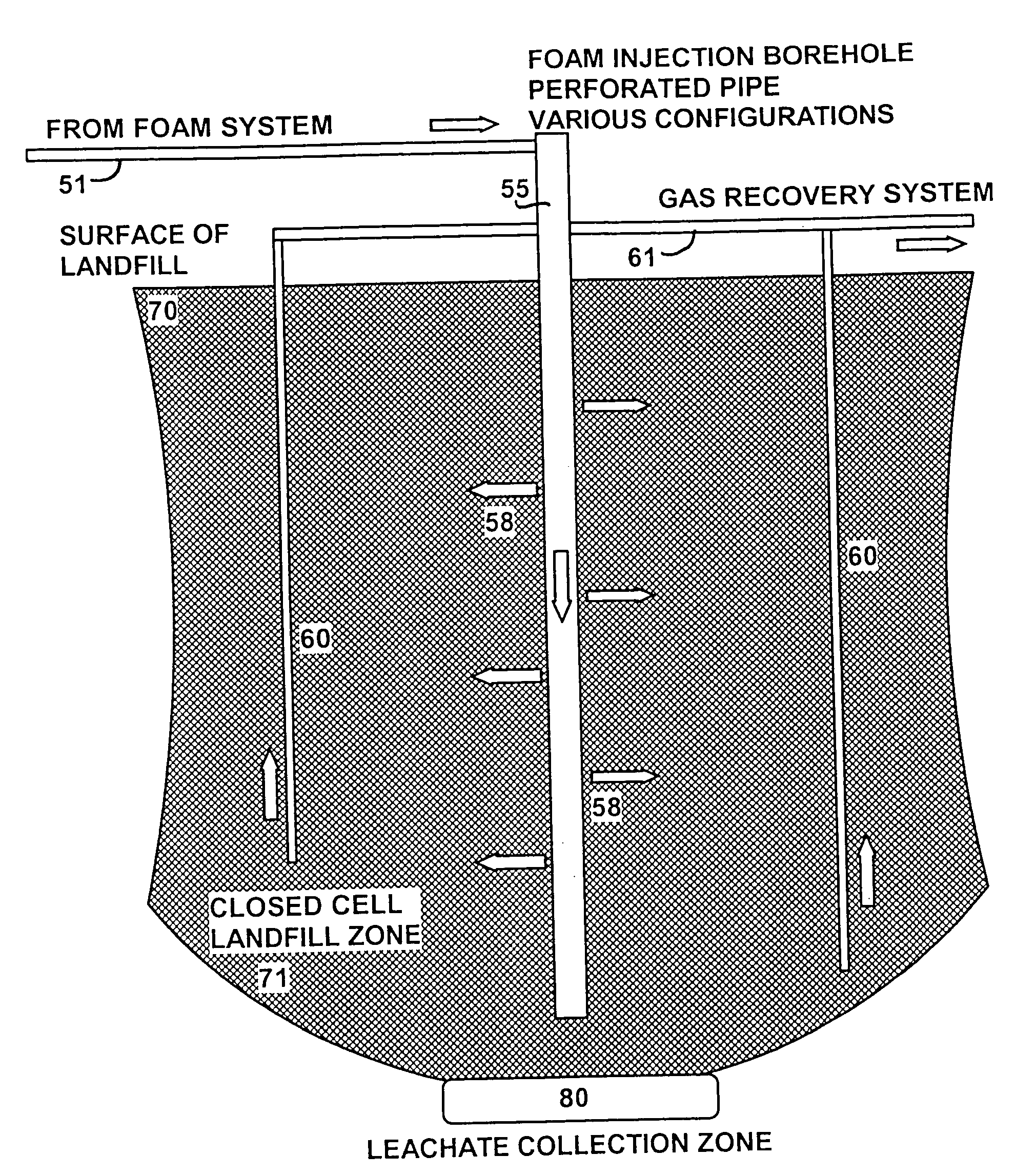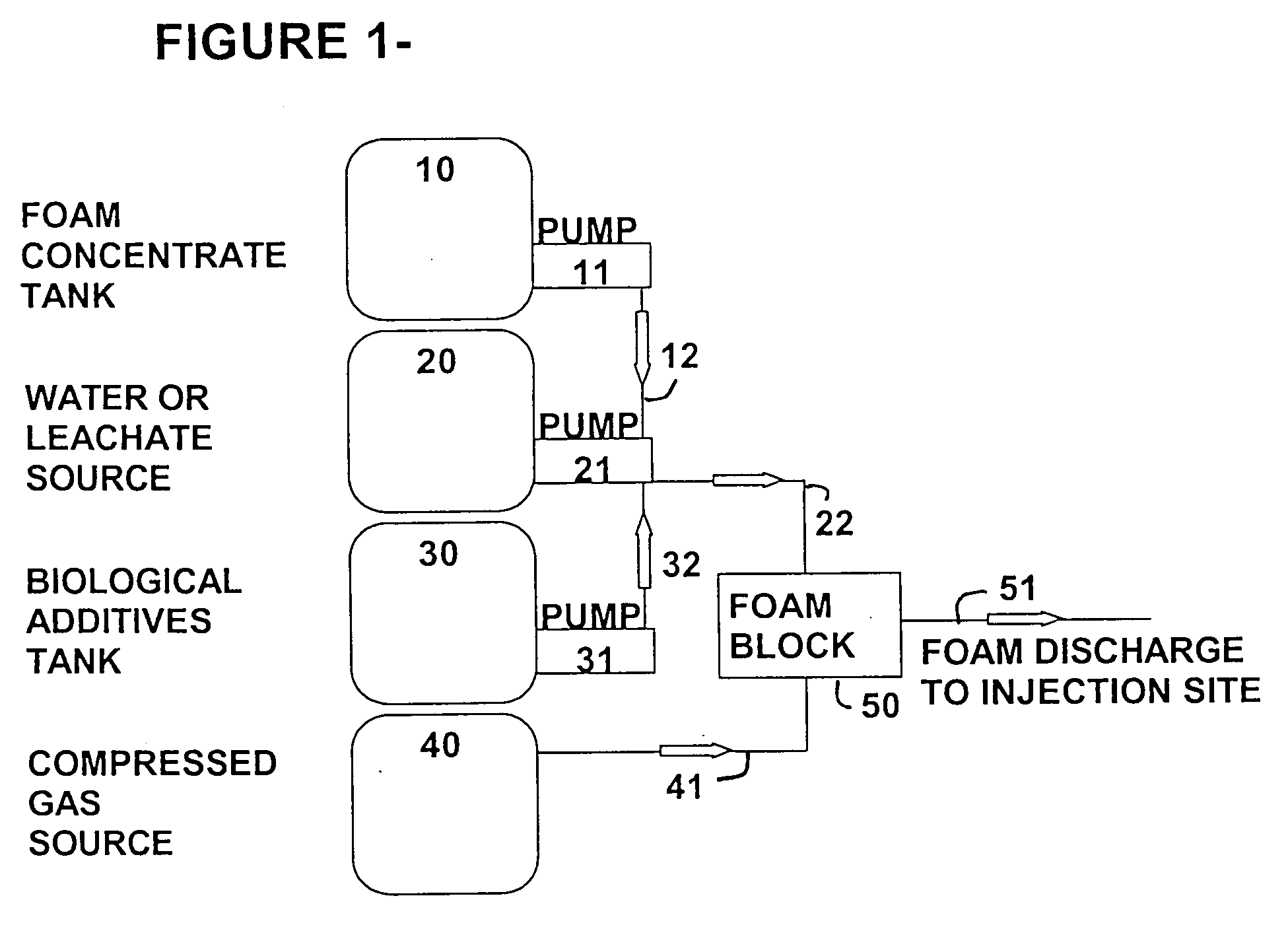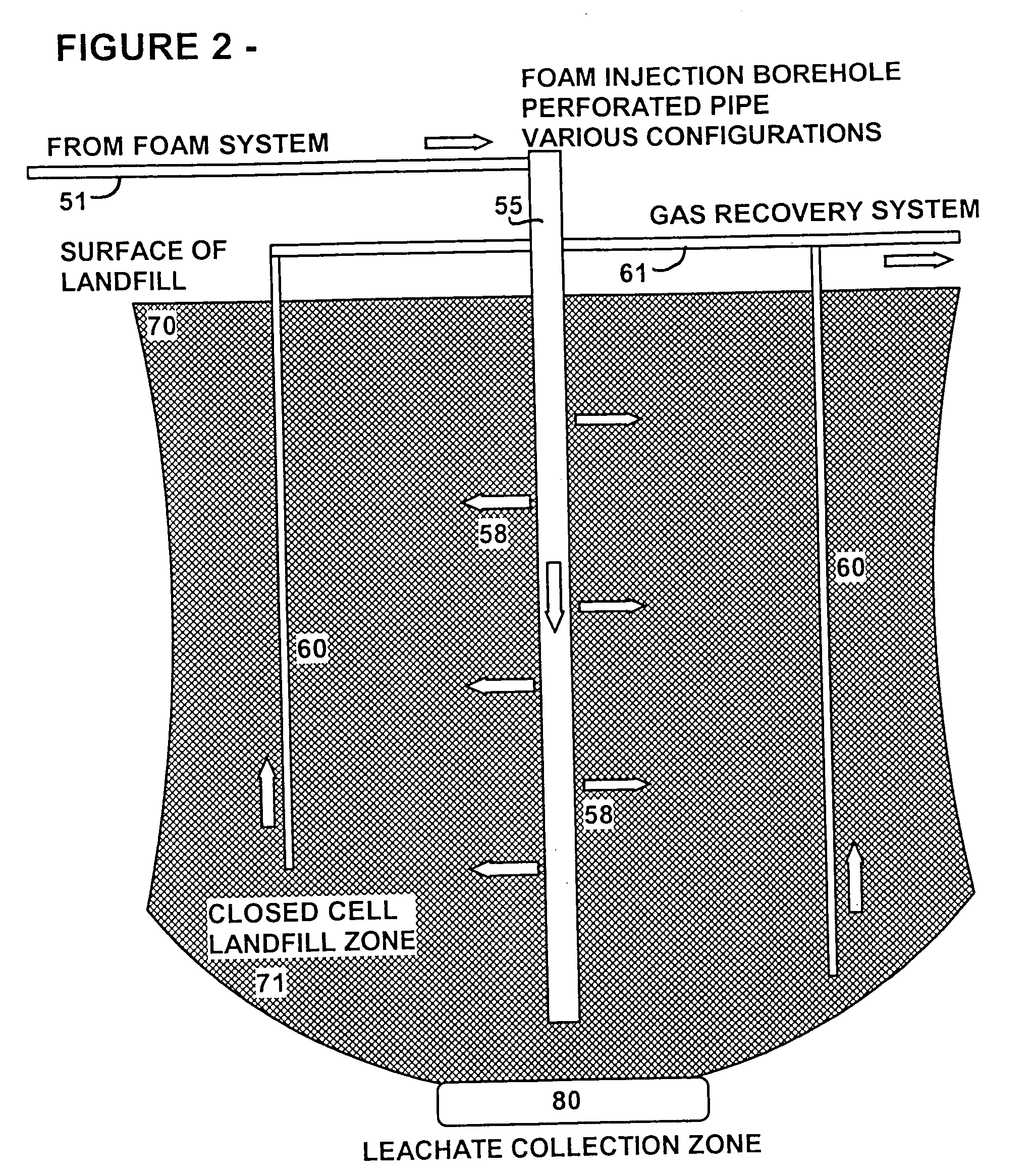Gas recovery from landfills using aqueous foam
a landfill and gas recovery technology, applied in landfill technologies, radioactive decontamination, nuclear engineering, etc., can solve the problems of limited material impact, if any, of moisture addition to the overall mass of trash
- Summary
- Abstract
- Description
- Claims
- Application Information
AI Technical Summary
Benefits of technology
Problems solved by technology
Method used
Image
Examples
example one
Foam Concentrate for Landfill Moisture Addition
[0056] Room temperature water, 25800 grams (56.88 pounds) was placed in a suitable stirred vessel. Potassium tripolyphosphate (FMC Corporation, Philadelphia, Pa.), 300 grams (0.66 pounds) was added and dissolved with stirring. Next, AS-40 α-olefin sulfonate (40 wt % actives, Stepan Company, Northfield, Ill.), 1500 grams (3.31 pounds) was added and stirred for a few minutes to complete the mixing. Acrysol ICS-1 (30 wt % actives, Rohm and Haas Company, Philadelphia, Pa.), 2000 grams (4.41 pounds) was added to the vessel and stirred until homogeneous. The solution was now ready for viscosity increase via the addition of base, thereby raising the pH. Various bases can be used, including sodium, potassium, and ammonium hydroxide, as well as simple amines, like triethanolamine or diethanolamine, or combinations of the two. When triethanolamine (Dow Chemical Company, Midland, Mich.) is used, approximately 400 grams (0.88 pounds) is added very...
example two
Foam Concentrate for Landfill Moisture Addition and H2S Control
[0057] Similar to the previous example composition, this multiple use formulation needs to also have the H2S control component optimized / adjusted for the operating conditions. However, an advantage of the hydrolyzed protein systems is that they have much greater tolerance with respect to dilution water composition than the more conventional anionic systems, thereby allowing easier incorporation of leachate as the dilution medium. In a similar manner, the hydrolyzed protein system needs a foaming component, the dry hydrolyzed protein (100 wt % actives, Industria Suma, Brazil), a viscosity modifier, modified starch (100 wt % actives, Cargill Cerestar, Bedrijvenlaan, Belgium or National Starch, Bridgewater, N.J.) to adjust the drain time performance, and a ferrous ion component to stabilize the protein but also provide hydrogen sulfide destruction capability. As in the case with anionic systems, the overall formulation is ...
example three
Foam Concentrate for Moisture and Dispersant Addition
[0058] A foaming concentrate with added dispersing properties can be formulated in many different ways, but a simple example including both soap-based dispersants (stearate salts) and polymer-based dispersants (polyacrylate salts) along with the foaming surfactant can be a variation of Example One, above. In a suitably sized vessel, place 7007 kilograms (15449 pounds) of water and heat to about 55-60° C. Add 163 kilograms (360 pounds) of potassium tripolyphosphate (FMC Corporation, Philadelphia, Pa.) and stir to dissolve. Follow this with the addition of 572 kilograms (1262 pounds) of triethanolamine (Dow Chemical, Midland, Mich.) and 1633 kilograms (3600 pounds) of AS-40 α-olefin sulfonate (Stepan Company, Northfield, Ill.). Stearic acid, Hystrene 5016 (Witco Chemical, Greenwich, Conn.), 542 kilograms (1195 pounds) can be added slowly with stirring, allowing melting and dissolution. When this operation has been completed 968 kil...
PUM
 Login to View More
Login to View More Abstract
Description
Claims
Application Information
 Login to View More
Login to View More - R&D
- Intellectual Property
- Life Sciences
- Materials
- Tech Scout
- Unparalleled Data Quality
- Higher Quality Content
- 60% Fewer Hallucinations
Browse by: Latest US Patents, China's latest patents, Technical Efficacy Thesaurus, Application Domain, Technology Topic, Popular Technical Reports.
© 2025 PatSnap. All rights reserved.Legal|Privacy policy|Modern Slavery Act Transparency Statement|Sitemap|About US| Contact US: help@patsnap.com



